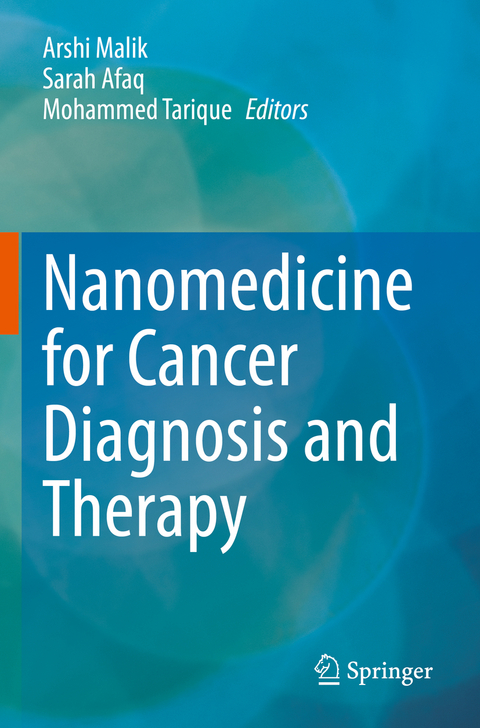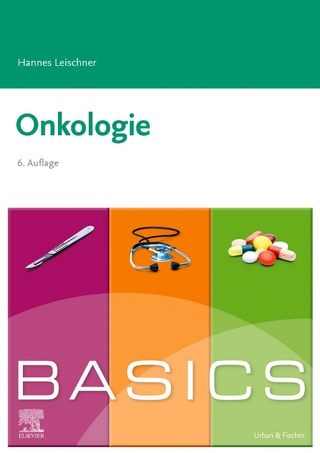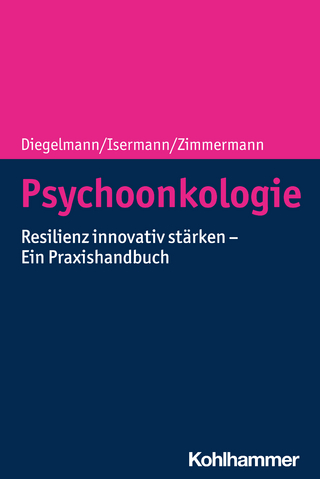
Nanomedicine for Cancer Diagnosis and Therapy
Springer Verlag, Singapore
978-981-15-7566-2 (ISBN)
Arshi Malik is an Assistant Professor at the Department of Biochemistry, College of Medicine, King Khalid University. Previously, he worked as a Research Associate at the Wellman Laboratories of Photo medicine and Photobiology, Massachusetts General Hospital, Harvard Medical School, and as an Assistant Researcher at the University of Wisconsin. His main research interest is in chemoprevention and chemotherapy using various natural agents. He has extensive experience with human tissue cultures, orthotopic/ecotopic implantations of tumors in rodents, tail vein injections, and surgery on small animals. He is a member of various scientific societies, including the American Association of Cancer Research, USA, and Society of Investigative Dermatology, USA. To date, he has published 30 research articles in peer-reviewed international journals and has contributed one book chapter. Sarah Afaq is an Assistant Professor at the Department of Biochemistry, College of Medicine, King Khalid University. Previously, she was an honorary associate at the Department of Surgery, University of Wisconsin, Madison, USA, and an Assistant Professor at the Department of Biochemistry, Roorkee College of Pharmacy, Roorkee, India. She has extensive experience in human cancer and embryonic stem cell lines as well as blood screening for anti-DNA antibodies in Systemic Lupus Erythematosus patients, as well as nanotechnology-based techniques for the design and delivery of drug molecules. She is a member of numerous scientific societies, including the Clinical Immunology Society, USA and International Society for Stem Cell Research, USA. To date, she has published more than 20 research articles in peer-reviewed international journals. Mohammed Tarique is a Dr. D.S. Kothari Postdoctoral Fellow at the Center for Interdisciplinary Research in Basic Sciences (CIRBSc), Jamia Millia Islamia, India. Holding a Ph.D. in Plasmodium Biology from the International Centre for Genetic Engineering and Biotechnology, New Delhi, India, his research focuses on understanding the biology of Plasmodium towards the development of novel drugs. He has published more than 20 research articles in peer-reviewed international journals. Currently serves on the editorial boards of numerous journals, including the International Research Journal of Engineering and Technology, American Journal of BioScience, and Cell & Cellular Life Sciences Journal.
Chapter 1. Nanoparticles for Cancer Therapy.- Chapter 2. Strategies for Improving the Efficiency of Nanomaterials.- Chapter 3. Bioinspired Nanoparticles in Cancer Theranostics.- Chapter 4. Nanomedicines for Solid Tumors: Current Status, Challenges and Future Prospects.- Chapter 5. Nanomaterials for Early Cancer Diagnosis.- Chapter 6. Role of Nanomedicine for Cancer immunotherapy.- Chapter 7. Targeting Tumor Microenvironment Through Nanotheranostics.- Chapter 8. Therapeutic Applications of Noble Metal (Au, Ag, Pt)-Based Nanomedicines for Melanoma.- Chapter 9. Ethics in Nanomedicine.- Chapter 10. Challenges and Future Opportunities of Nanomedicine in Cancer Therapy.-
| Erscheinungsdatum | 08.07.2022 |
|---|---|
| Zusatzinfo | 35 Illustrations, color; 2 Illustrations, black and white; VII, 249 p. 37 illus., 35 illus. in color. |
| Verlagsort | Singapore |
| Sprache | englisch |
| Maße | 155 x 235 mm |
| Themenwelt | Medizin / Pharmazie ► Medizinische Fachgebiete ► Onkologie |
| Medizin / Pharmazie ► Studium | |
| Schlagworte | Cancer • immunotherapy • leukemia • nanoparticles • Solid tumor |
| ISBN-10 | 981-15-7566-5 / 9811575665 |
| ISBN-13 | 978-981-15-7566-2 / 9789811575662 |
| Zustand | Neuware |
| Haben Sie eine Frage zum Produkt? |
aus dem Bereich


